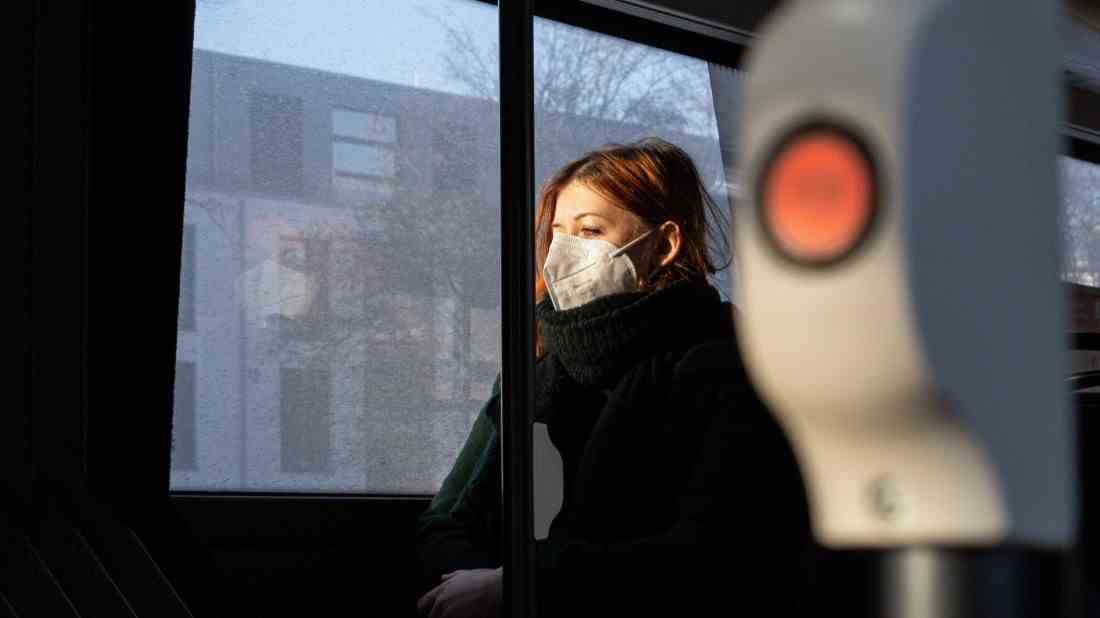The press conference by Prime Minister Markus Söder (CSU) after the cabinet meeting on Tuesday was something special. From Söder’s point of view, certainly because of the concept presented for renewable energies. What was significant, however, was what did not exist at this date: the topic of Corona.
Not a word escaped Söder or the State Chancellery Minister Florian Herrmann (CSU) about the pandemic situation, and there is nothing about it in the cabinet report. That may have been the first time in more than two years. Even in the past few months, when the focus was on the war in Ukraine and its consequences, Herrmann always reported the numbers to the cabinet – infections, hospital cases, vaccination rate. One could say: The new normality, as it now characterizes social life, has thus also symbolically found its way into state politics.
In any case, the situation has calmed down: In Bavaria, 152 intensive care beds were occupied by corona patients on Wednesday. The original Bavarian clinic traffic light provides a red warning level at a threshold of 600. But some measures still apply, for example the obligation to wear masks on the train and in local public transport – and this is now triggering political debates again. Because Bavaria wants to stick to the mask requirement on buses and trains over the summer.
Abolition would come “too soon,” warns the Minister of Health
Health Minister Klaus Holetschek (CSU) said Süddeutsche Zeitung: “The pandemic currently appears to be less threatening, but the abolition of the mask requirement on buses and trains would be too early at this point in time.” He therefore calls on the federal government to maintain the mask requirement in local and long-distance public transport – “also for the summer”.
Previously, the radio station had Antenna Bavaria Quoted from Holetschek. The minister spoke out against a move by Federal Transport Minister Volker Wissing (FDP) to remove the mask requirement. Obviously, Wissing does not have a majority in the traffic light with SPD and Greens. The federal law runs until September, so there is no phasing out in the summer: a change would have to be made actively. Federal states, on the other hand, could theoretically switch off for their public transport – not for long-distance traffic in the country.
“Corresponding debates in Berlin have now been caught again,” said Holteschek. “Especially on buses and trains, people often come together without being able to keep their distance. Here the mask is not only useful for self-protection, it also helps to protect others with an increased risk of serious illness.”
The Bavarian Corona Ordinance is initially valid until May 28th, it must then be extended. He doesn’t want to anticipate the deliberations in the Council of Ministers, says Holetschek. However, a change would potentially be conceivable: “In the warm season, one could certainly think about surgical masks instead of FFP2, that cannot be ruled out, at least in principle. However, FFP2 masks also serve to protect oneself.”
The traffic light parties have different views
The traffic light parties in Bavaria, on the other hand, show a mixed picture, analogous to Berlin. FDP parliamentary group leader Martin Hagen thinks that citizens can “protect themselves with masks on the bus and train, but they should no longer be obliged to do so”. The previous easing had already proven itself, the corona numbers fell significantly. At the plenary session this Thursday, the Liberals want to introduce an emergency motion.
Ruth Waldmann, health politician in the SPD parliamentary group, sees the “often full” local and long-distance traffic as a “special situation in terms of transmission”. Christina Haubrich (Greens) is also in favor of keeping the mask, saying it is “not unreasonable” – vulnerable groups could avoid events where things get tight; but they are dependent on getting from A to B.
After the most recent cabinet meeting, the press conference did not report on Corona because of the focus on energy policy. Internally, the pandemic is said to have been an issue before, according to government circles. There are ongoing discussions about the preparations to be prepared for a possible wave in autumn.
Among other things, Holetschek wants to improve communication and launch an “information offensive” as early as late summer. “The pandemic has shown us that it is not enough to act quickly and correctly. Communication must also be right,” he said on Monday evening at the annual conference of Bavarian newspaper publishers. This is also important “in order to counter targeted disinformation, for example from the ranks of the ‘lateral thinkers'”.
Bavaria is pushing for compulsory vaccination from the age of 60
The preparations also include ensuring that the vaccination centers in Bavaria remain ready to start up. Together with Baden-Württemberg and Hesse, the Free State is also pushing for a new start in the Bundestag for compulsory vaccination from the age of 60. Older people have a higher risk of becoming seriously ill, says Holetschek – “the federal government must no longer duck away from this.”
Meanwhile, another detail of the Bavarian regulation is a topic of conversation: the state government’s general “recommendation” to wear masks indoors. In social networks, people are annoyed that they see photos of folk festivals or public events in which Söder, but sometimes also Holetschek, are photographed without a mask. There is often talk of “double standards”. SPD politician Waldmann also says: “What should one think of the recommendation and the call for caution when the CSU tweets such pictures out into the world?”
Holetschek said: “The recommendation for masks indoors will remain, but we are in the area of personal responsibility.” He himself “very often continues to wear the mask, especially when going in or at events with older people. I don’t wear it in restaurants, for example, it wasn’t mandatory there before”. It is “the question of how everyone wants to make a decision based on the situation – also with a view to protecting themselves from severe courses through vaccination and boosters”.

